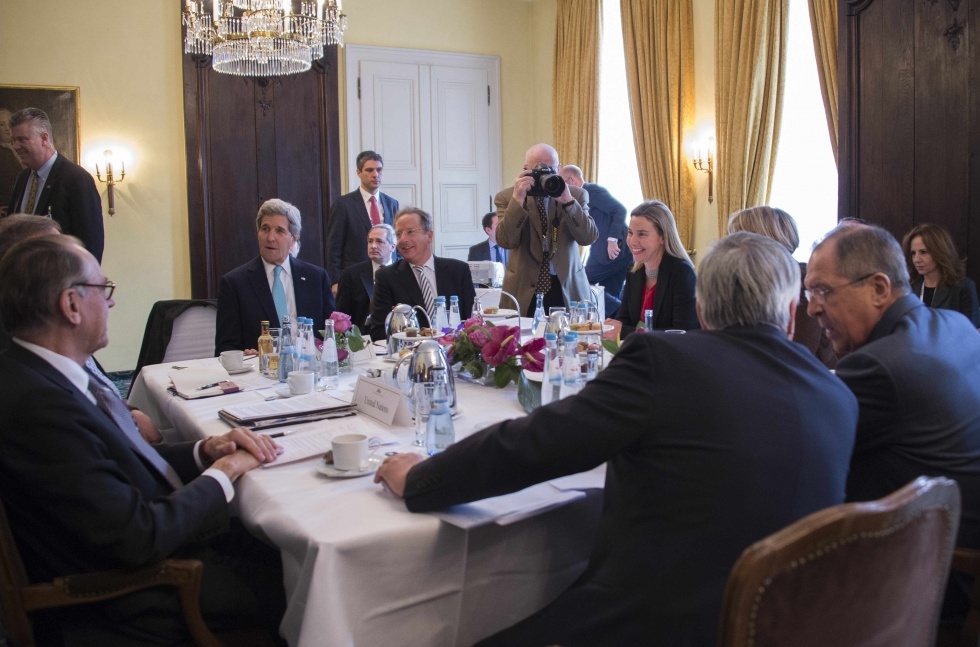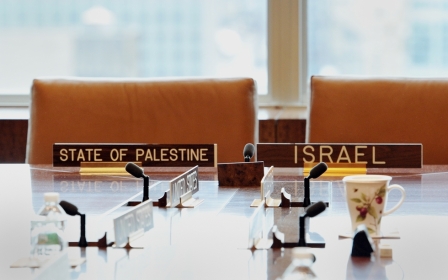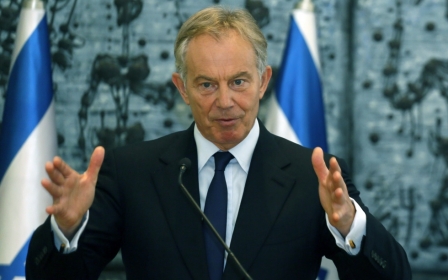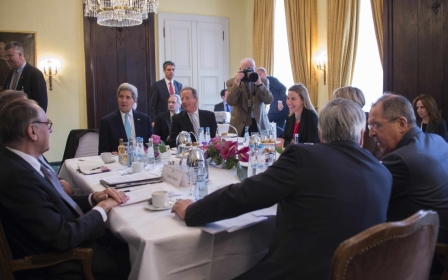Mideast Quartet to give Israelis, Palestinians 'wake-up call'

A much-awaited report by the Middle East diplomatic Quartet should serve as a "wake-up call" to Israel to halt the expansion of settlements and to the Palestinians to renounce violence, the UN envoy said on Thursday.
Nickolay Mladenov said ongoing Israeli construction in the West Bank was one of three "negative trends" that must be quickly reversed to keep the hope of an Israeli-Palestinian peace deal alive.
Violence and incitement, settlements and the Palestinian Authority's lack of control over the Hamas-run Gaza Strip "severely undermine hopes for peace," Mladenov said.
"These negative trends can and must be urgently reversed in order to advance the two-state solution on the ground," he told the UN Security Council.
He said the Quartet would like to see Israel allow for more Palestinian infrastructure projects in Area C - which is under full Israeli control and in which Israel rarely grants Palestinians permission to build.
But Mladenov added: "Let me be unequivocally clear that a permanent status agreement ending the conflict can only be achieved through direct, bilateral negotiations, the outcome of which cannot be prejudged by unilateral steps that would not be recognised by the international community."
The 10-page report prepared by the Quartet - the US, EU, Russia and the UN - is to be released on Friday after several delays.
Its findings and recommendations are to serve as the basis for reviving an Israeli-Palestinian peace process that has been comatose since a US initiative collapsed in April 2014.
In an interview with AFP, Mladenov said he hoped the report would prompt both sides and world leaders to take action to revive the peace process.
"Certainly I would hope that this report would serve as a wake-up call," he said. "We can't leave this the way it is. We simply can't."
There has been growing alarm that ongoing violence and the construction of Jewish settlements on land earmarked to be part of a future Palestinian state are killing off prospects for a peace deal.
Time for action
Mladenov, a Bulgarian diplomat who has served as the UN's Middle East coordinator since 2015, said both the Israelis and Palestinians will receive recommendations on steps they can take to address all three tracks - violence, settlements and Hamas rule in Gaza.
"Certainly we want action, on all fronts," said Mladenov.
"These are parallel trends that are happening as we speak and they are all in of themselves causes of trouble."
The report "will not be a score card for assigning blame," but rather the consensus view of the Quartet powers on what needs to be done to revive prospects for a two-state solution, he said.
As the council discussed the new peace plan, a Palestinian attacker stabbed and killed a 13-year-old girl in a Jewish settlement in the occupied West Bank. The State Department confirmed she was a US citizen.
Israeli-Palestinian violence since October has killed at least 211 Palestinians and 33 Israelis, as well as five foreigners.
Mladenov declined to say how long it might take to restart peace talks, but he said that a return to negotiations was the only course of action.
"Endless occupation is a recipe for disaster" that will lead to a "perpetual lack of security and violence," he told AFP.
The UN envoy asked the Security Council to endorse the report recommendations in a move that would turn the document into an internationally agreed roadmap for Israeli-Palestinian peace.
French Ambassador Francois Delattre said the report could help advance plans for a Paris peace conference on the Middle East later this year.
"The French initiative and the Quartet report mutually reinforce each other and have a common goal to put the peace process back on track," Delattre said.
France has set up working groups that will draw up a list of incentives for both the Israelis and the Palestinians to come to the table for talks.
New MEE newsletter: Jerusalem Dispatch
Sign up to get the latest insights and analysis on Israel-Palestine, alongside Turkey Unpacked and other MEE newsletters
Middle East Eye delivers independent and unrivalled coverage and analysis of the Middle East, North Africa and beyond. To learn more about republishing this content and the associated fees, please fill out this form. More about MEE can be found here.




